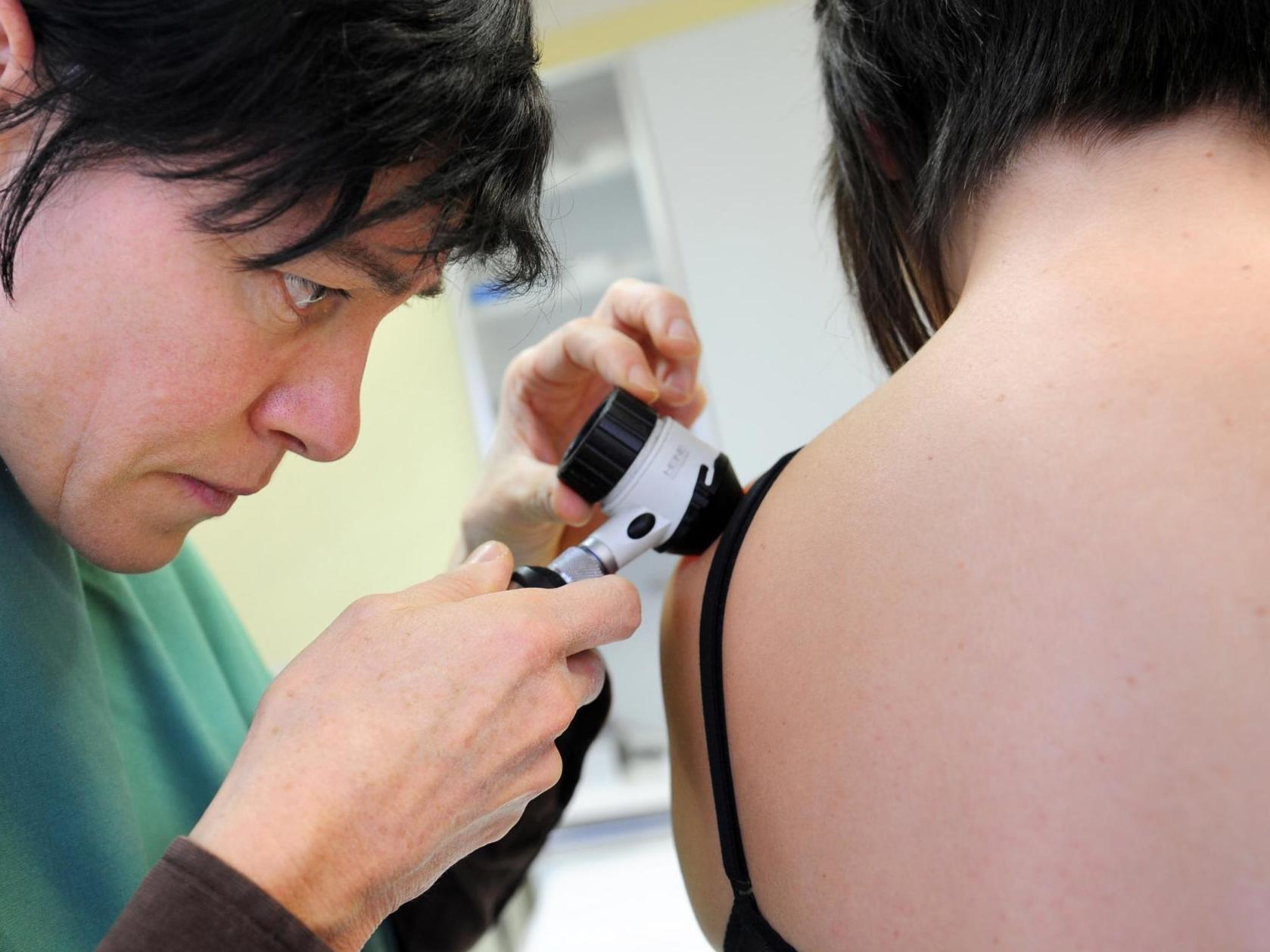Five skin conditions linked to coronavirus identified by dermatologists
Spanish dermatologists have discovered pattern of symptoms with patients who have contracted Covid-19
Your support helps us to tell the story
From reproductive rights to climate change to Big Tech, The Independent is on the ground when the story is developing. Whether it's investigating the financials of Elon Musk's pro-Trump PAC or producing our latest documentary, 'The A Word', which shines a light on the American women fighting for reproductive rights, we know how important it is to parse out the facts from the messaging.
At such a critical moment in US history, we need reporters on the ground. Your donation allows us to keep sending journalists to speak to both sides of the story.
The Independent is trusted by Americans across the entire political spectrum. And unlike many other quality news outlets, we choose not to lock Americans out of our reporting and analysis with paywalls. We believe quality journalism should be available to everyone, paid for by those who can afford it.
Your support makes all the difference.Dermatologists have discovered five skin conditions connected with contracting coronavirus.
Research conducted on 375 patients in Spain has shone a light on how Covid-19 might be displayed in the form of skin symptoms.
All Spanish dermatologists were tasked by the Spanish Academy of Dermatology with examining patients with unexplained skin eruption in the last two weeks, which included those who either suspected or were confirmed to have contracted the virus.
An initial 120 images were examined by four dermatologists following a standardised questionnaire without knowing any further clinical information.
And a consensus was reached over patterns of the effect of Covid-19 on the skin, though authors of the study, published in the British Journal of Dermatology, have urged the public not to self-diagnose based on skin symptoms alone due to the difficulty in separating common rashes and lesions without medical advice.
However, upon further examining the other images the dermatologists were then able to determine five broader conditions, by which nearly all patients could be classified.
There were 19 per cent of cases with chilblain-like symptoms, which were described as “acral areas of erythema-edema with some vesicles or pustules” and can be commonly found on hands and feet. The study details how these symptoms showed up as red or purple spots caused by bleeding under the skin and tended to be asymmetrical in appearance.
Lasting 12.7 days on average, these symptoms were usually aligned with milder forms of the virus and more commonly experienced by younger patients.
The study also found “vesicular eruptions” in nine per cent of cases; these small blisters, commonly itchy, were mostly found on the trunk of the body, filling with blood and dispersing across a wider area.
These were experienced more so with middle-aged patients who had suffered from the virus at an intermediate severity and they lasted 10.4 days on average.

Thirdly, 19 per cent of cases brought up “urticarial lesions”, which may be commonly interpreted as nettle rash – or wheals - has have pink or white raised areas of the skin and lasted on average 6.8 days.
“Other maculopapules”, which were identified as small, flat and raised red bumps, were found among 47 per cent of cases and could be discovered around hair follicles.
Compared to the common skin condition of pityriasis rosea, the condition lasted on average 8.6 days.
Crucially though, researchers noted that maculopapules and urticarial lesions are both common and can occur for a wide range of regions, meaning they are not a useful symptom when detecting Covid-19.
Livedo or necrosis was the final category from the research and only occurred in six per cent of cases. They are caused by the impairment of circulation in the blood vessels of the skin and led to patients experiencing a blotchy red or blue appearance.
Linked to older patients experiencing severe cases of Covid-19, these cases were connected with “occlusive vascular disease” and poor blood flow to certain parts of the body.
The study also said patients showed different degrees of lesions pointing to “occlusive vascular disease”, where a narrowing or blocking of arteries occurs and therefore limits blood flow to certain areas of the body.

Join our commenting forum
Join thought-provoking conversations, follow other Independent readers and see their replies
Comments